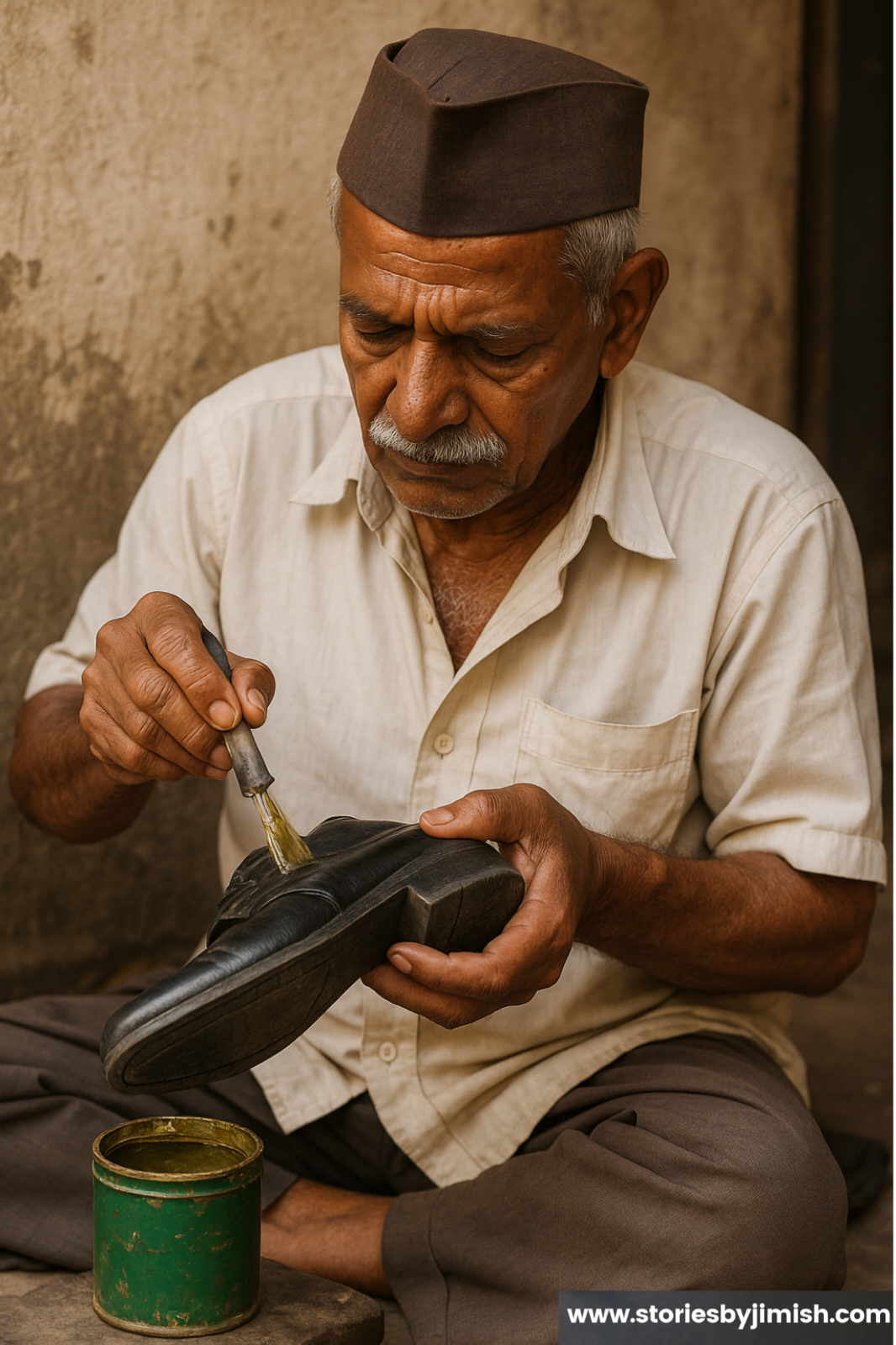“Kaka, can you please mend this?” I asked in Marathi, as I squeezed my two-wheeler into the narrow space between the cobbler’s tiny shed and a PCO that had been converted into a popular Vada Pav stall over 20 years ago.
One part of my sports shoes had its sole come off, again. (I still don’t get the difference between walking shoes, running shoes, gym shoes, or even bedtime shoes. For old-school me, if it’s not leather or canvas, it’s all just "sports shoes.") So, come Saturday morning, I decided to finally tick the “fix shoes” item off my to-do list.
As soon as I handed over the shoe, Kaka pulled out a rugged piece of sandpaper and began rubbing the inside of the sole that needed to be stuck back to the base. The passion with which he worked was no less than that of a cricketer polishing his bat before walking out to play the final over.
Next, he pulled out a green can - the kind of adhesive I’ve seen carpenters and cobblers use for as long as I can remember. He pried open the lid with a screwdriver-like tool and began applying the glue to the inside of the sole.
“How much does this cost?” came a voice from just behind my right shoulder. It was a lad in his twenties.
“Thirty rupees,” Kaka replied.
The boy gave a quick nod of acknowledgment and walked away.
“Compared to 20 years ago, do many people still come to you to mend their footwear?” I asked Kaka, as he set the shoe aside to let the adhesive dry for a bit.
“Hardly anyone, compared to back then,” he replied, banging the lid of the adhesive tin shut to make sure it was airtight.
“I’ve noticed that too. People rush to buy something new at the slightest sign of damage,” I added.
That seemed to strike a nerve.
“People don’t even bother spending a few rupees to fix things anymore,” he said, animatedly. “I see perfectly good footwear thrown into the trash almost every day. But it’s okay, we’re probably the last generation of cobblers anyway.”
With that, he pressed the sole back into place, pounded it firmly with a heavy tool, and handed the shoe over to me.
In a world quick to replace, the quiet act of mending - be it shoes, clothes, relationships, or jobs - reminds us that not everything needs to be replaced or thrown away. Sometimes, a little care and repair is all it takes.
I GPay-ed Kaka thirty bucks and glanced at the long queue at the next shop, where people waited patiently to buy a Vada Pav for twenty.
Kaka, meanwhile, returned to his Marathi newspaper - quietly waiting for the next customer...






